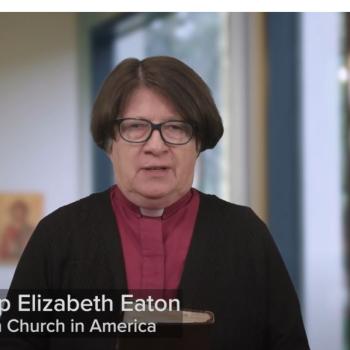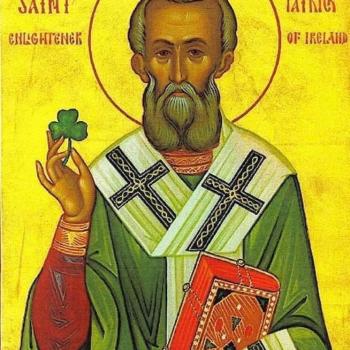How might Christian living look different if our churches were different?
First, we would measure our "success" not by the number of people but by the diversity of our love.
Second, we would measure our "success" in spiritual growth not so much by individual spiritual development but by community inclusion and expansion to witness to the manifold grace and ways of God in this world for all people.
Third, we would see the gifts and fruit of the Spirit as opportunities to grow as a fellowship that needs the Spirit to have a "ghost" chance of creating a new kind of fellowship.
Fourth, we would be known as much for our love of all as we are for what we believe (about God, Christ, the Spirit, salvation, etc.).
What would need to happen for today's church to more closely resemble Paul's early vision for the church?
We have to begin with repentance for our insanity of sameness and exclusiveness.
We can only approximate this vision if we push pause on what we are doing to take stock of where we are in diversity in our love. We need to ask "how diverse is our love?" Then we would have ask God's Spirit to create in us -- what the Spirit wants to do -- an intention to open the doors to all sorts in our fellowship. Then we have to ask the Spirit for even more courage to act out so that we become a place fixated on bringing "all" into fellowship with God and with one another.
Are there current examples of churches doing this "fellowship of differents" well that we might look to for inspiration?
Yes. But I hesitate to announce such churches because, as pragmatic Americans, we'll ask that church to host a conference and teach us their tricks. So, yes, plenty of churches are already at work, and it is ours not to copy or to imitate but to ask God to breathe the fresh wind of God's Spirit on us so that we can learn who is near us and link to all those in our community so that we can love one another truly and form a fellowship of differents. But if you ask, Wayne Gordon at Lawndale Community Church in Chicago is a good example. Maybe the best inspiration is the parable of the Good Samaritan by Jesus who encourages us to ask ourselves one question: Who is on my path?
Near the end of your book, you devote a chapter to the word you believe most summarizes Paul's vision of the flourishing Christian life: joy. How do we discover joy in our lives together as Christians?
Joy is not to be confused, as it often is in our culture, with happiness or that happy-clappy feeling when all things are going our way. The word "joy" has a habit of appearing in the New Testament when things seem to be going wrong! Joy is seeing through what is happening to see what God is doing in this world: Jesus was raised from the dead, he has cracked the spell of death, and he has been raised to rule with the Father, and all of life -- for there to be joy -- finds its orientation from that conviction. That life is the last word when God will make all things right.
When we join with one another in a fellowship of differents the joy comes from seeing God do this "new creation" work in our midst, when we struggle to find ways to reconcile, when we break through into God's peace, and when we experience a kingdom sense of justice where it had not been before. That is the Bible's sense of joy.
Read an excerpt from A Fellowship of Differents at the Patheos Book Club.
Scot McKnight (Ph.D., Nottingham) is professor of New Testament at Northern Seminary, Lombard, Illinois. He is the author of several books, including the award-winning The Jesus Creed, The King Jesus Gospel, One.Life, and The Blue Parakeet, as well as Galatians and 1 Peter in the NIV Application Commentary series. He is a frequent contributor to Patheos via his award-winning blog, the Jesus Creed.





